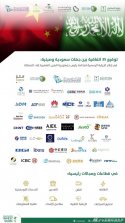China's read out regarding their meeting with GCC.
——做共筑安全的伙伴。中国将继续坚定支持海合会国家维护自身安全,支持地区国家通过对话协商化解分歧,构建海湾集体安全架构。欢迎海合会国家参与全球安全倡议,共同维护地区和平稳定。
Stuff here about security and how China will support GCC countries in protecting themselves. A lot of weapons sales here I'm sure.
Now, this is what to come in the next 3 to 5 years.
第一,构建能源立体合作新格局。中国将继续从海合会国家扩大进口原油、液化天然气,加强油气开发、清洁低碳能源技术合作,开展油气贸易人民币结算。设立中海和平利用核技术论坛,共建中海核安保示范中心,为海合会国家培养和平利用核能与核技术人才。
So this is the big one. Mainly surrounding settling oil & gas in RMB. Now, I think the importance here is that China wants to have their own exchange in Shanghai that people can come to trade commodities in oil & gas. This would rival CME, ICE or LME. They need to do some real work here so that people are in fact willing to utilize this platform. At the end of the day, China wants other countries (especially other Asian ones) to also be using RMB when they are buying/selling oil & gas and other products. If I were them, I'd also commoditize processed metals.
The straw here is the offer of clean energy cooperation (especially solar for Middle East countries). More importantly, they are also going to be working to train GCC countries to use nuclear technology. That I think is very important if they want to sell more nuclear plants here.
第二,推动金融投资合作新进展。中方愿同海合会国家开展金融监管合作,成立共同投资联合会,支持双方主权财富基金以多种方式开展合作,研究举办中海产业和投资合作论坛,加强数字经济和绿色发展等领域投资合作,建立双边投资和经济合作工作机制,深化数字货币合作。
第三,拓展创新科技合作新领域。中方愿同海合会国家共建大数据和云计算中心,加强5G和6G技术合作,共建一批创新创业孵化器,围绕跨境电商合作和通信网络建设等领域实施10个数字经济项目,建立中海气象科技合作机制,举办中海应对气候变化研讨会。
第四,实现航天太空合作新突破。中方愿同海合会国家在遥感和通信卫星、空间应用、航天基础设施、航天员选拔训练等领域开展合作,欢迎海合会国家航天员进入中国空间站,同中国航天员联合飞行并开展空间科学实验。欢迎海方参与中国航天任务搭载合作,研究成立中海联合月球和深空探测中心。
第五,打造语言文化合作新亮点。中国将同300所海合会国家大中小学合作开展中文教育,同海合会国家合作设立300个中文智慧教室,提供3000个“汉语桥”夏(冬)令营名额,建立中文学习测试中心和网络中文课堂,举办中海语言文化论坛,共建中海人文交流和互鉴双语文库。
beyond that. there is also cooperation is digital economy and green technology development and financial development.
The big one that Chin his offering is clouding computing, AI, big data, 5G/6G, e-commerce, building communication networks and other digital economy field.
space cooperation and train arstronaut to participate in China's space station. Allow them to use China's ISR satellites, presumably Beidou and such.
Finally, Chinese language education. Interesting enough, this is something that MBS has been pushing also.
nytimes also covered it here
Mr. Xi said that China and the Gulf countries would establish a shared “forum” for peaceful uses of nuclear energy as well as a China-Gulf center for nuclear security.
China also wants closer cooperation with the Gulf countries in the fields of space exploration and infrastructure, and they are discussing establishing a shared center for moon and deep space exploration, Mr. Xi said. His country will assist the Gulf States in training their own astronauts, who will be welcomed on China’s space station to work with Chinese astronauts and to conduct scientific experiments, he added.
The argument you see in the west too often is that China is only gaining ground due to its disregard for Saudi human rights. The real issue is that America is offering Saudi Arabia nothing except military protection. GCC countries are in desperate need to move beyond hydrocarbon economy to continue their wealth generation when rest of the world is cutting back on carbon footprint. It seems to me their idea of using large swaths of desert land to get solar energy and converted to green hydrogen is a good idea. And it would really benefit China to be able to supply them the technology to get there. Other things are also needed for GCC countries to not get left out of digital economy.

